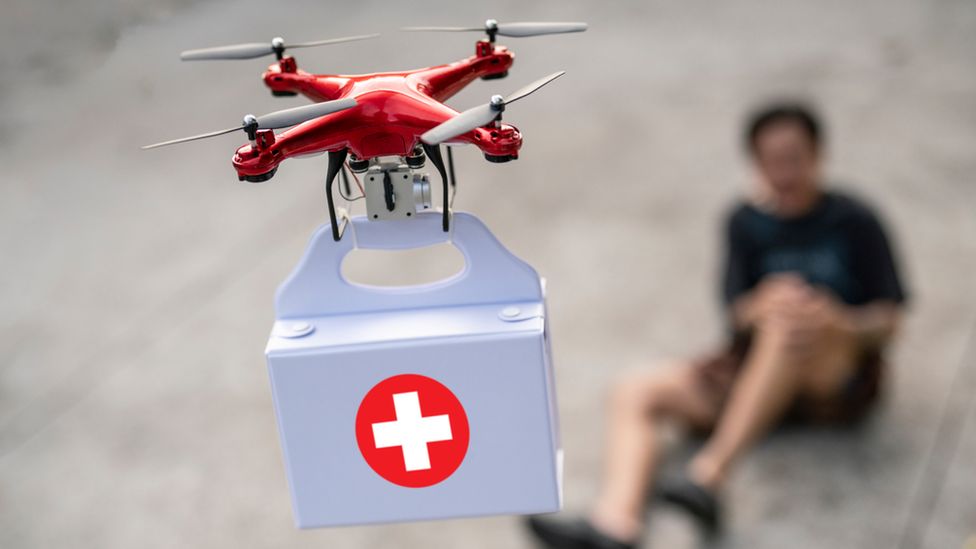Drone rules may change to allow medical deliveries
- Published
- comments

The rules on flying drones in the UK could soon be changed, according to new proposals that could allow the delivery of critical medical supplies.
The Civil Aviation Authority's plans would make it easier for drones to be flown out of sight of their pilots.
The regulator said it would help rail firms and power companies to inspect essential infrastructure.
The plans form part of a wider scheme to integrate new technology into UK airspace.
The CAA said: "Inspections of railways, powerlines, and roads as well as critical medical deliveries could be unlocked with new proposals put forward by the UK Civil Aviation Authority to allow further flying of drones beyond the visual line of sight."
Under current rules, drones are heavily constrained in where they can fly when their pilots cannot see them directly and have to rely on the feed from an on-board camera.
The biggest concern is that they are unable to detect or avoid other aircraft. For this reason, such flights are only allowed under trial conditions in segregated airspace.
Under the proposed new rules, out-of-sight flights would be allowed at low altitude in areas where other aircraft would not be expected to operate.
This could include:
- Within 30 metres of any building
- Within 15 metres of a railway, road or power line
- At a maximum height of 15 metres over a private property
In theory, this would allow drones to be used much more freely to inspect essential infrastructure, to monitor farmland, and to improve site security.
"Our proposals are a positive step towards unlocking the next stage for drone flying in the UK," said Kevin Woolsey, head of remotely piloted aircraft systems at the CAA.
"Allowing drones to fly beyond the sight of the remote pilot, without placing restrictions on other aircraft in the area, will be a major achievement for UK drone operations."
The new scheme, which will be the subject of a six-week consultation, forms part of the UK Future Flight Programme.
The regulator is working with industry to prepare for a future where a new generation of aircraft, including delivery drones and electric flying taxis are expected to become increasingly commonplace.
Related Topics
- Published4 February
- Published6 January
- Published19 October 2023